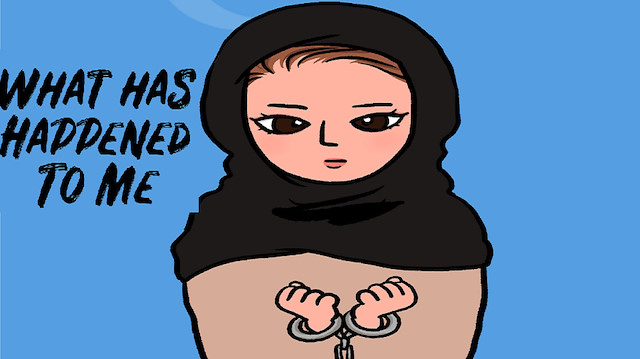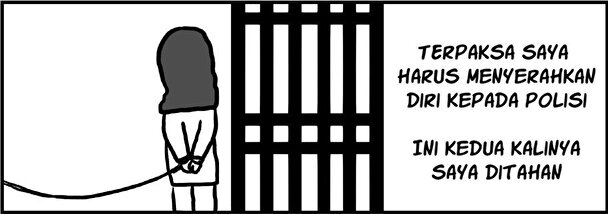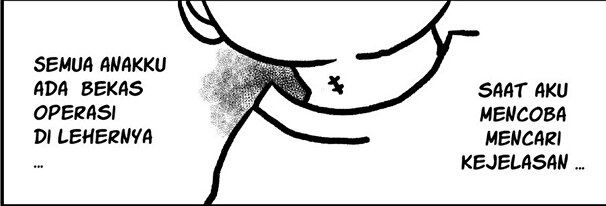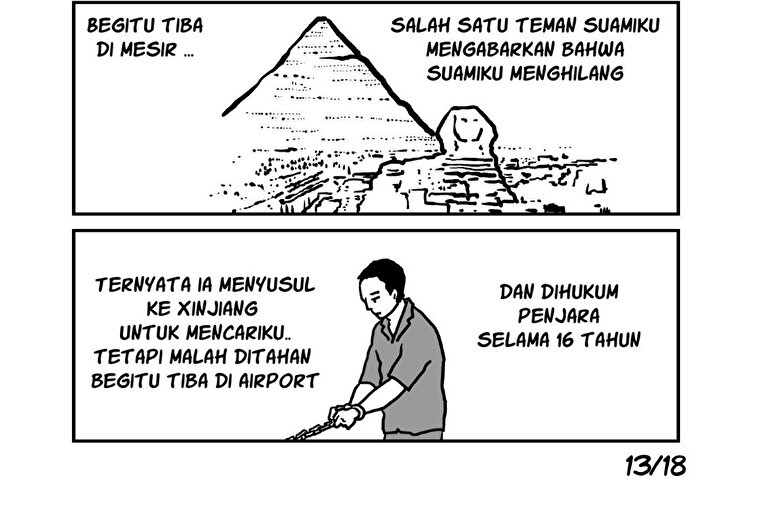
'During day time, we had to pray to the Chairman of the Communist Party to live long, and sing songs hailing the communism,' tells Mihrigul Tursun, a 29-year-old Uyghur
Her husband has been jailed for more than 16 years and one of her young children succumbed to death following detainment, both at the hands of the Chinese government; what follows is the heart wrenching story of one Uyghur woman has become a viral manga.
"What has happened to me — A testimony of a Uyghur woman" tells the tale of Mihrigul Tursun, a 29-year-old Uyghur, just one of the thousands who have been persecuted by China and its medieval methods of torture used against the Muslim minority.
Little did Tursun know that her story, which was adapted into a manga, or Japanese comic book, by Tomomi Shimizu, would go viral, leading it to be read more than 240,000 times on Shimizu’s website.
The Japanese artist said that she was inspired by Tursun’s story, which she heard at an event organized by Amnesty International and Meiji University, even though she has not been in “direct” contact with her.
Uyghurs, a Turkic ethnic group that make up 45 percent of the population of Xinjiang, accuse China of carrying out repressive policies that restrain their religious, commercial and cultural activities.
“As soon as I arrived at Urumqi airport, I was handcuffed and put a dark sack over my head. My triplets were separated from me,” Shimizu quotes Tursun, who now lives in the U.S. with her two surviving children, as saying.

Shimizu, who just wanted to visit her parents in 2015, said she was oblivious as to why she was being detained. She goes on to say that she suffered torture by electrocution before being handed the dead body of her eldest son, who bore operation scars on his neck.

Released and detained once again, Tursun suffered beatings and sleep deprivation after being taken to a crowded prison camp, where she was forced to sing songs hailing communism.
“During day time, we had to pray to the Chairman of the Communist Party to live long, and sing songs hailing the communism,” she said.
“They forced us to take different kinds of unknown pills and have injections every single day.”
Subsequently, she was sent to a mental institution after beatings had left her unconscious. Now Tursun was allowed to go home with two Chinese officials living in her home and monitoring her every move.
However her freedom in the open-air prison did not last long, and for the third time Tursun was detained, forced to wear an orange jumpsuit and told to get ready for her demise.
She was finally released only to take her children back to Egypt, because her children were in possession of citizenship. However, she was threatened by China which had detained 26 of her relatives and told that she could come back in two months or suffer the consequences.

Tursun returns to Egypt with her two sons where she expects to meet her husband, only to find out he went looking for her and was detained by the Communist government, getting a sentence of 16 years in prison.
Many refer to China's Xinjiang Uyghur Autonomous Region -- home to many ethnic minorities, including the Turkic Uyghur people -- as East Turkestan.
As many as 1 million people, or about 7 percent of Xinjiang’s Muslim population, have been incarcerated in a sprawling network of "political re-education" camps, according to U.S. and UN studies. Beijing says that its camps in Xinjiang are "vocational training centers.”
Last September, the New York-based Human Rights Watch released a report accusing Beijing of a "systematic campaign of human rights violations" against Uighur Muslims in Xinjiang.
Hello, the comments you share on our site are a valuable resource for other users. Please respect other users and different opinions. Do not use rude, offensive, derogatory, or discriminatory language.
The floor is all yours.








